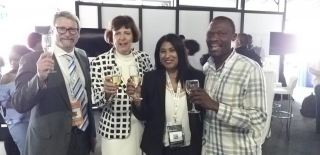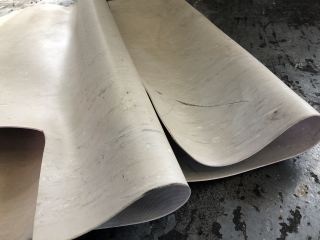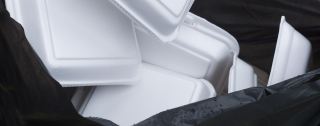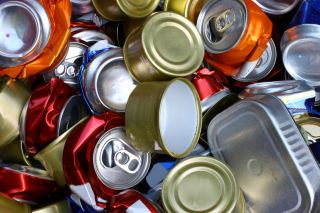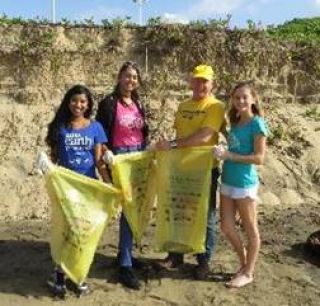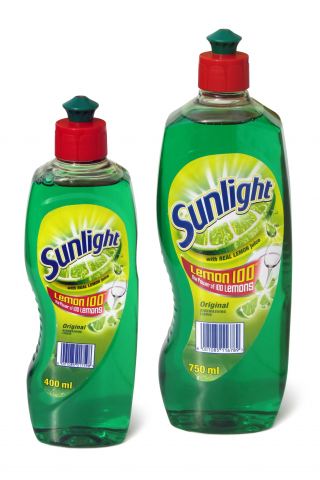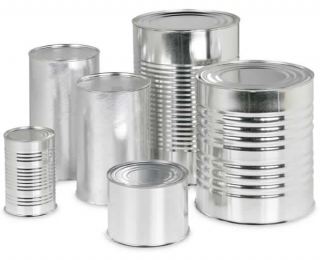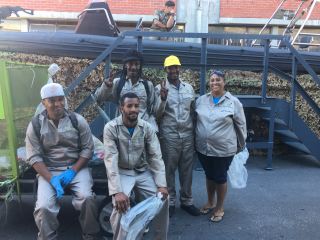PLASTICS INDUSTRY UPBEAT AND HOPEFUL FOLLOWING SUCCESS OF PLASTICS COLLOQUIUM
Plastics SA, the umbrella body representing all sectors of the South African Plastics Industry (including polymer producers and importers, converters, machine suppliers, fabricators and recyclers) has congratulated the Department of Environmental Affairs, Forestry and Fisheries (DEAFF) on the hosting of a very successful Plastics Colloquium in Boksburg recently.
According to Anton Hanekom, Executive Director of Plastics SA, they applaud DEAFF Minister Barbara Creecy’s pro-active approach, openness and willingness to learn first-hand about the many successful projects that the various role-players in the plastics industry have initiated and been running over the past 10 years. “As an industry, we have been the first to acknowledge the need to reduce the impact plastics have on the environment and ensure that plastic litter does not end up in our oceans, water sources or anywhere in nature. To this end, Plastics SA and the four plastic Producer Responsibility Organisations (PROs), namely Petco, Polyco, SAVA and the Polystyrene Association of SA have launched various recovery and recycling projects, with which we have had great success. It was encouraging that Minister Creecy created an opportunity for the industry to showcase these achievements to her, her department and other environmental groups. Instead of blindly bowing to the pressure of anti-plastic campaigners, she expressed a willingness to engage with us,” Hanekom says.
An estimated 500 people representing the entire plastics value chain attended the Plastics Colloquium on the 21stand 22nd of November, which was presented in collaboration with the Consumer Goods Council South Africa (CGCSA) and Plastics SA. More than 50 exhibitions demonstrated the plastics industry and other stakeholders’ commitment to Extended Producer Responsibility, recycling and creating a circular economy. Attendees represented government, civil society, brand owners, recyclers, waste management companies, waste pickers, NGO’s and SMMEs who were all encouraged to attend the presentations, panel discussions and visit the exhibitions.
Speaking at the opening of the Colloquium, Minister Creecy said: “Plastics have been with us since the 1950s. Because it is so versatile, it is used throughout modern society. The material is waterproof, durable, versatile and inexpensive. However, these characteristics are precisely what create so many pollution problems. With the growth in plastic consumption, concerns about plastic pollution are also growing”. She praised the work done by both government and the private sector in terms of the setting up of infrastructure for the recovery and recycling of plastic and the informal sector for collecting much of these materials, but warned that the evidence suggested much more still needed to be done.
“It is time to combine the wealth of collective experience to relook at the complex and difficult problem. Considering the whole value chain and lifecycle of products, the aim is to develop a comprehensive plan as part of an ongoing initiative that would engage all citizens to create a love for South Africa and the environment,” Creecy said, highlighting the need for a holistic approach to be taken in line with the principles of the circular economy.
“We found it hugely reassuring to hear that the Minister shares our passion to get South Africans recycling and separating their waste at home. By implementing effective waste management services at municipalities around the country, we will be able to get access to good quality, recyclable waste and reduce the burden on our country’s landfills. This will also be a major step forward in preventing plastic from entering our rivers and, eventually, the sea,” Hanekom says.
Another major focus at the Plastics Colloquium, was the importance and value of creating a circular economy. “Waste can be converted into value. Every ton of waste that ends up on dumpsites creates one job opportunity. However, every ton of waste that gets recycled, creates 18 jobs," the Minister stressed. Key to creating a circular economy is ensuring that plastic products and packaging are designed with their recyclability in mind. To this end, the challenge was made to brand owners, packaging designers and manufacturers to design products that are not only fit-for-purpose, but also environmentally responsible.
Looking ahead and explaining what the next steps will be, Hanekom says the Minister and her team will be drawing up a Master Plan, consisting of targets and timeframes, in consultation with industry. “The working groups of the SA Initiative to End Plastic Waste will continue their work and will be giving quarterly feedback to the Minister about their progress. They have been tasked to develop evidence-based solutions that will fit our unique South African context, and come back with suggestions and recommendations. A second Plastics Colloquium is proposed for next year to monitor the progress made and ensure that the plans are implemented effectively and that all of the talking that has happened until now, doesn’t end up as empty promises,” he explains. “We are optimistic about what the future holds for the plastics industry and the rest of the country as a whole. It is clear that for the first time in many years a relationship of trust has developed between government, industry and other role-players. There is a spirit of cooperation and a willingness to work shoulder to shoulder to find the best solution possible for everybody concerned,” Hanekom concludes.
For more information, please visit www.plasticsinfo.co.za
7.5 TONS OF VINYL FLOOR OFF-CUTS COLLECTED THANKS TO INDUSTRY COLLABORATION
Polyflor SA and Innovative Pvc Compounds (IPC), both members of the Southern African Vinyls Association(SAVA), joined hands recently to ensure that 7.5 tons of vinyl floor off-cuts are collected, of which 6 tons were recycled, following an installation at the Dr Pixley Ka Isaka Seme Memorial Hospital – a new R3bn hospital in KwaMashu that is scheduled to open its doors by December 2019.
About the project
The 500-bed regional hospital named in the honour of Dr Pixley Ka Isaka Seme, one of the first black lawyers in South Africa and a founding member of the African National Congress (ANC), is the largest hospital currently in development in South Africa. It is situated near Bridge City Mall (a new mixed-use precinct that serves as a business, commercial and transportation hub for the eThekwini Municipality) and will be amongst the largest public healthcare facilities in the country once it is completed. The new development forms part of the KwaZulu-Natal Department of Health Hospital Revitalisation Programme. It will provide 1.5 million people living in KwaMashu, Inanda, Ntuzuma and surrounding communities in the northern Durban catchment area with a full spectrum of medical services.
The power of networking
Polyflor SA, one of South Africa’s leading suppliers of vinyl sheeting and luxury vinyl tiles to the healthcare-, retail-, education- and commercial industries, was awarded the contract to supply more than 35 000 m² of vinyl sheeting at the hospital. Polyflor SA launched the country’s only official programme that recycles vinyl sheeting off-cuts generated during installations in 2016. The company’s contractors are given specially branded recycling bags in which they place the off-cuts, in order to be returned to the company’s head office in Sebenza, Johannesburg, for weighing and recording and collection by recyclers. “Upon hearing of our involvement in the project through our networking at SAVA and given the fact that it was literally taking place on their doorstep, IPC offered to assist us with the recycling of the off-cuts at their premises,” comments Tandy Coleman, CEO of Polyflor SA. “Their involvement in this project made the entire process considerably shorter and easier to manage”.
Stepping out and stepping up
IPC is a family-run vinyl compounds supplier based in Durban. Established in 2010, they are one of the PVC compounders who supply their products nationwide, as well as internationally, for the manufacturing of footwear, safety shoes, gumboots, wire coating, floor tiles, electrical and plumbing fittings, for the moulding and extrusion industries. “Although recycling of vinyl products is not a core focus of our business, we do encourage our customers to allow us to reprocess any, if not all, of their off-cuts in view of maintaining a sustainable environment. Vinyl floor off-cuts are a valuable source of clean, top quality material that holds high recycling value. For this reason, we were eager to assist Polyflor by collecting, reprocessing and recycling the material at our facility in Phoenix Industrial Park in Durban, before supplying it back into the industry as compounds for the footwear sector”, explains Mubeen Siddiqi, CEO and Director at IPC.
State of PVC recycling in SA
Adri Spangenberg, CEO of the Southern African Vinyls Association, applauded both companies for their pro-active approach and supporting the industry to reach its recycling targets. https://www.pressportal.co.za/2938150d-64a9-4ae9-90e7-2b2c64a393a4" width="213" height="140" />“PVC recycling in South Africa has seen 16.4 % year-on-year growth in during 2018, whilst the virgin consumption increased 2.3 % in the same period. 20 778 tons of PVC were recycled in South Africa, of which 80 % was flexible and 20 % rigid vinyl products. Because the recycling process does not measurably decrease the chain length of PVC molecules, vinyl products can be recycled repeatedly up to 8 times - depending on the application. For this reason, the vinyls industry has been working very hard to boost collection of waste, optimise recycling technologies and boost the percentage of recyclate in new products,” she says. Footwear continues to be the biggest market application (43%) for recycled, flexible PVC, followed by pipes (23%), flooring and cables (both 12%). Other applications for recycled PVC include speed bumps, traffic cones, gum boots, vehicle heel mats and rubber edging used around pet bowls.
Plans for future collaboration
Both Polyflor SA and IPC agree that the project was a huge success and that they are eager to collaborate on similar projects in future. “It is Polyflor’s vision to minimise carbon emissions as much as possible, as well as being socially and economically responsible. Partnering with IPC on this recycling project enabled us to deliver an additional service to the client that was greatly appreciated. It also saved us time, money and kept our carbon footprint as small as possible because the materials did not have to be transported up to Gauteng for reprocessing. It is also hugely encouraging to know that the valuable material was effectively recycled and continued to add value in its second life!”, Tandy concludes.
POLYSTYRENE ASSOCIATION RESPONDS TO DEA LABEL OF “PROBLEM PLASTIC”
“It is an excellent product that gets the job done. The problem does not lie with the material, but with how it is discarded and highlights the need for waste infrastructure to be developed. We believe we have a viable solution to this problem…”
The Polystyrene Association of South Africa (PolySA) has responded to a statement made by the Portfolio Committee on Environmental Affairs before the National Assembly yesterday, that polystyrene is one of the five so-called “problem plastic products” that have a short lifespan and are the biggest culprits in our environment. The other items on this list are plastic cutlery, stirrers, earbuds and straws.
The Association’s Chief Executive Officer, Adri Spangenberg, said that polystyrene is so much more than just a single-use plastic, given the fact that South Africa has developed various end-markets that use recycled polystyrene with great effect.
“During the 2017-2018 financial year, more than 6 300 tons of polystyrene were successfully diverted from our country’s landfills and recycled in South Africa. Considering that our recycling figures stood at 1 849 tons in 2013, we are very proud of this growth – proving that the local polystyrene recycling industry is growing and thriving,” she said.
Spangenberg said recycled polystyrene is in great demand by recyclers, who use the material in the production of picture frames, cornices and stationery. “The biggest demand for polystyrene, however, has comes from the building and construction industry where recycled polystyrene is used in the production of lightweight concrete bricks and screeds. Polystyrene used in this application can be of any colour or grade, clean or slightly contaminated as it gets chopped up and mixed with a special mixture of cement and other ingredients to form lightweight concrete that is waterproof, fire resistant, offers insulation against heat and cold and it is cheaper and easier to build with than traditional bricks or concrete”.
The Association acknowledges that polystyrene is one of the items frequently found in the environment, owing to the fact that it is incredibly lightweight and is therefore easily scooped up and blown away by the wind.
“94 % of polystyrene is air, and only 6 % is product. This gives polystyrene the reputation of being “engineered air” that has the lowest carbon footprint of all packaging materials, in addition to being affordable. It protects valuable goods and food from breakage or spoilage and is an excellent insulator for hot or cold foods and beverages. In short, it is a material that gets the job done. The problem therefore does not lie with the material, but how it is discarded after use. In our opinion, this highlights the need for proper waste management infrastructure to be developed and implemented by municipalities around the country,” Spangenberg stresses.
The Department of Environmental Affairs agreed that the country cannot afford a knee-jerk reaction to problematic single-use plastics and has called for a thorough socio-economic impact assessment to measure the effect that alternatives to these problem products will have on the industry, consumers and jobs.
“The plastics industry provides employment to more than 60 000 people and the Polystyrene Association has recently unveiled exciting plans that will see this figure increase even further. We are partnering with municipalities to take polystyrene collection and recycling to the people with the establishment of Polystyrene Trading Hubs in the larger metro cities and Municipal Polystyrene Recycling Hubs in outlying areas. These hubs will address will provide a much-needed solution for housing, employment and the waste crisis by enabling communities to collect, recycle and produce the material they need to address the build houses in their immediate area”.
Projections are that polystyrene recycling in South Africa will be increased by to 63.7 % (27 870 tons) per annum by 2023 with these hubs.
“Banning polystyrene just as we are on the cusp of an exciting breakthrough, will jeopardize the future employment of thousands of people and undermine the excellent work we have been doing over the last 11 years. Our industry is committed to finding a solution that will permanently bring an end to plastics polluting the environment. We invite Government and other stakeholders to engage with us in the weeks and months to come as we work together to find what we believe can undoubtedly be a win-win solution that the rest of the world can follow,” Spangenberg concluded.
For more information, visit www.polystyrenesa.co.za
Hospital Recycling Programme turns waste into Wealth
Marilyn Monroe once said: “Give a girl the right pair of shoes and she can conquer the world”. Thanks to a ground-breaking hospital recycling project which was initiated by the Southern African Vinyls Association (SAVA) in 2010, non-hazardous intravenous infusion (IV) drip bags and tubing made of polyvinyl chloride (PVC) are now being recycled into soles for school shoes.
“We started researching the concept of “practicing green health” in 2010, but our proposals and calls to recycle waste from hospitals were met with lukewarm enthusiasm at the time. Fortunately, a lot of research on this topic has taken place locally and internationally since then, with numerous examples and case studies proving that it is indeed possible and economically viable for hospitals to adopt this approach,” says Delanie Bezuidenhout, CEO of the Southern African Vinyls Association (SAVA).
Today, recycling non-hazardous medical products is being described as being a pioneering and collaborative move for the healthcare industry. Globally, PVC recycling programmes are changing the way hospitals think about reducing both their costs and their impact on the environment.
“More than 40% of all plastic-based disposable medical devices used in hospitals are made from high quality PVC which are highly recyclable. By collecting and reprocessing products such as IV bags, oxygen masks and tubing, a minimum of 2 500 tonnes of locally recyclable material is diverted from our country’s landfills,” Delanie says.
South Africa currently has 33 PVC recyclers who recycle rigid and flexible PVC. Between them, they recycled more than 17 000 tonnes of PVC in 2016 into various items, such as soles for school shoes, gumboots and traffic cones.
One of the first fruits of SAVA’s medical waste recycling drive was seen in Johannesburg recently, when roughly 1 000 school shoes were handed over to learners of the Masakhane Tswelopele Primary School in Zandspruit by Executive Mayor, Councillor Herman Mashaba and the City of Johannesburg. This donation was made possible thanks to Adcock Ingram Critical Care, Netcare and the City of Johannesburg, who have begun dealing with their uncontaminated healthcare waste in a way that creates functional new products, including school shoes for disadvantaged children.
“Thanks to funding we received from Adcock Ingram Critical Care, SAVA was able to put research into practice. We spent several hours providing unit managers, head of departments, cleaning staff, nursing staff and waste management staff with training into separating and recycling non-hazardous PVC waste with PowerPoint presentations, practical demonstrations, video’s as well as in-depth and question and answer sessions.
Conveniently located blue coloured bins were set up specifically for the purpose of segregating uncontaminated used PVC drip bags and the PVC waste material was collected by recyclers who then sold it to a company that uses this high grade and quality PVC plastic to make soles for shoes.
“We are very excited to see that the success of PVC recycling programmes are changing the way hospitals think about reducing both their costs and their impact on the environment. South Africa is following the lead of countries like Australia by taking a tough approach on plastics in the belief that this could create jobs in recycling, engineering and research.
The support we are now receiving from the medical fraternity makes it clear that hospitals and clinics are rethinking the way in which they deal with healthcare waste. They are starting to realise that recycling their non-hazardous PVC waste not only has a positive impact on curbing the costs of waste management, but it also increases their own awareness about conducting their day-to-day business in a way that is environmentally responsible and sustainable,” Delanie concludes.
For more information, visit www.savinyls.co.zaENDS
MetPac-SA sets its sights high
MetPac-SA, the newly-formed producer responsibility organisation representing the steel, tinplate and aluminium packaging industries, has identified the increase of the recycling of metal packaging as one of its main objectives.
Precious metals in the recycling stream
“Aluminium and steel packaging are the world’s most recycled packaging and are literally worth their weight in gold. Originally, beverage cans were made from steel, and have successfully been collected in South Africa for the past 25 years. In many regards, it can be said that we have lead the way for responsible recovery and recycling of packaging in our country,” says Delanie Bezuidenhout, CEO of MetPac-SA.
According to Delanie, aluminium and metal cans are regarded as high value items by recyclers, and therefore has the potential for generating greater income and securing bigger margins across the entire collection chain. “Buy-back centres continue to pay well for cans that are collected, thereby providing a much needed income for schools and informal collectors. We want to ensure that every can entering the market is collected and recycled and that everybody in the value chain works together – from the informal collectors pushing their trolleys, through to the scrap dealers,” she stated.
Recycling aluminium cans not only saves on scarce natural resources, such as Bauxite - the principal ore used for aluminium production imported from tropical and sub-tropical areas such as the West Indies, South America and Australia where it naturally occurs - but also on energy. “Twenty recycled cans can be made with the energy needed to produce one new can using primary aluminium ingot. Similarly, recycling one beverage can saves the amount of energy needed to burn a 100w bulb for 4 hours,” Delanie explained.
Spreading the message to the community
Over the past 25 years, the local cans industry has built an impressive track record of recycling accomplishments, thanks to the terrific work done by Collect-a-Can and their shareholders who have achieved much success with their recoveries and ongoing education about recycling. Founded by ArcelorMittal South Africa and Nampak as a way to proactively address the beverage can industry's responsibility to the environment, Collect-a-Can has played a major role in the recovery of scrap tinplate generated in the tinplate and can-making processes, including cut-offs, misprints, sub-standard fills, and most importantly used metal cans.
When Collect-a-Can began, there was no unified policy on addressing the growth of waste. The public was sceptical and automatically opposed to new waste site proposals. Since then, much has changed as thought and support are given to regulations for waste and environmental control. This has helped to improve southern Africa’s used beverage can recovery rate from 18% to around 72%. It is one of MetPac-SA’s key objectives to build on the successes the industry has achieved thus far with the effective collection and recycling of steel cans.
Industry taking responsibility for its waste
“We are also fortunate to have important end-users such as Hulamin on our Board of Directors, as they understand the important role recycling plays in ensuring the sustainability of our industry and the environment,” Delanie says. Over the past 75 years, Hulamin has intimately been involved in the recycling of their internally generated process scrap as well as the fabrication scrap generated by customers. They took this commitment a significant step further by investing R300m two years ago in a recycling plant that process and cleans used beverage cans, thereby enhancing the company’s capability in the recycling of aluminium scrap.
“Recycling certainly makes a lot of business sense to us and for this reason we have adopted the principle of ‘extended producer responsibility’ in our business. Simply put, this means that if we make a product, we also take our share of the responsibility for its recycling at the end of its life,” says Riccardo Benedetti, Commercial Manager: Metals and Recycling at Hulamin. “Recycling not only supplies us with aluminium raw material, but also ensures that products made from our aluminium are not lost to the precious aluminium resource pool,” he adds.
Scrap with worth
A key recycling collection channel for the metals sector is the scrap metals industry. “We are expecting the amount of aluminium recoveries from beverage cans alone to increase significantly over the next 5 years. In order to minimise the risk of illegal scrap exports, which ultimately reduces the locally-available scrap pool, MetPac-SA will also be closely monitoring and working with the players in this sector,” Delanie explains.
Delanie stresses that MetPac-SA is open to collaborating on recycling initiatives with different associations in order to step up its recycling successes. “We believe that significant benefits and synergies can be unlocked by packaging waste streams joining hands and working together. For example, material collection can greatly be enhanced through reverse logistics in the supply chain.
Driving the recycling message home
Although there are numerous recycling initiatives and incentives established in communities around the country, as well as collection points in close proximity to neighbourhoods, MetPac-SA believes that an inherent recycling culture still needs to be established in South Africa.
“We're adding our voice to that of other material streams in educating the public around the why, what and how of recycling. Once consumers truly understand the need and value of recycling and the importance of reusing metal packaging, they will stop citing factors such as drop off points or storage space as barriers to recycling. However, we do agree with the repeated calls by more established players in the packaging industry that an effective separation-at-source infrastructure needs to be implemented at municipal level,” she appealed.
For more information, about MetPac-SA, please our website at www.metpacsa.org.za
SA PLASTICS INDUSTRY LAUNCHES OPERATION CLEAN SWEEP
The South African plastics industry recently launched Operation Clean Sweep on World Oceans Day (8 June 2017) at the uShaka Marine World, Durban.
According to Douw Steyn, Sustainability Director at Plastics|SA, the primary goal of the campaign is to stop plastic pellets, flakes and powder used in the plastics industry, from reaching the sea.
“We as the plastics industry produce the pellets and flakes used to manufacture plastic bags, bottles and other plastic products. When these micro-plastics are spilt during the manufacturing process, they are swept into drains from where they enter the sewerage system and eventually end up in our rivers and ultimately the sea. These pellets are smaller than a sunflower seed, therefore not easy to pick up during regular beach clean-ups. As a result, they are ingested by turtles, birds and marine life," Steyn explains.
Mark Liptrot, Sustainability Manager at the packaging company, Constantia Afripak, said the extended effect of plastics on the ocean is a growing problem as micro-plastics attract chemical pollutants that are ingested by marine life, which, in turn, is eaten by other marine animals.
Addressing the media, industry and members of the public who attended the breakfast launch, Steyn emphasised that plastics are integral to every aspect of our lives, particularly in protecting food from contamination.
“It is where we use it, how we use it and what we do with the plastic product once we are done with it,that is important. To address this problem and offer a workable solution, Plastics|SA launched “Operation Clean Sweep” - a worldwide drive aimed at reducing the amount of plastic pellets that end up in rivers and ultimately in the ocean”, Steyn said.
He added that the plastics industry as a whole had a role to play –from the producers and importers of raw materials pellets and flakes, to the converters and manufacturers of plastic products, as well as the recycling companies.
"Our goal is to achieve zero pellet, flake, and powder loss. Whilst it might seem to be an ambitious target, we believe it is possible through containment and the implementation of good housekeeping practices,” he said.
Catherine Constantinides, head of Miss Earth South Africa endorsed Operation Clean Sweep. “To help highlight the importance of clean oceans, Miss Earth SA ambassadors took part in 100 beach clean-ups across the country. But it's not just cleaning up that's important. Educating and creating awareness are equally necessary. If we don’t educate, we will be doing clean-ups for the next 20 years of World Ocean Day. We are appealing to retailers and the public at large to realise that they too have a vital role to play in ensuring that plastic products and waste do not end up polluting the environment," Constantinides implored.
Notes to the editor:
World Oceans Day Background:
The Ocean Project has promoted and coordinated World Oceans Day globally since 2002. We do so with a team based in the US and also advisors and volunteers in dozens of countries. We are a collaborative organization and work in partnership with hundreds of organizations, including World Ocean Network, the Association of Zoos and Aquariums, and many other networks from all sectors. Thank you to the Government of Canada for proposing the concept of a World Ocean Day, at the Earth Summit in Rio de Janeiro in 1992, and to the United Nations for officially recognizing 8 June as World Oceans Day, since late 2008. World Oceans Day® is trademarked to protect it from those who might have commercial or counterproductive interests. All information, materials and resources on this site and associated with World Oceans Day are free to use to those who are celebrating World Oceans Day as a way to bring about a healthier ocean and a better future.
World Oceans Day is celebrated around the world in cities and rural villages, close to the sea and far inland. In fact, over 600 events were hosted around the world last year.
ENDS
Entries now open for Recycled Plastic Product of the Year Awards
South African Plastics Recycling Organisation (SAPRO) is inviting entries to this year’s Recycled Plastic Product of the Year Awards.
SAPRO is proud to announce the sixth prestigious competition, with the aim of acknowledging the wide variety of products that are locally manufactured using recycled materials.
History of the competition
The Recycled Plastic Product of the Year Awards were held for the first time in 2010 and has been dubbed “The Oscars of the plastics recycling industry”. Each year the competition grows both in the number of entries and in the variety of different products being submitted.
This biennial competition showcases the tremendous amount of ingenuity and creativity our local product designers have, and aims to encourage brand owners to seriously consider recycled plastics as a material of choice. Whether they are designing packaging or pallets, shoes or shopping bags, this competition has demonstrated that there is no limitation to where and how recycled plastics can be used.
Previous overall winners include the City of Cape Town and MPACT Plastic Containers with their Fifty/50 Wheelie Bin (2015), Unilever with their Sunlight Dishwashing bottle (2013), Lasher Tools with their Eco-Wheelbarrow (2012), Woolworths and Polypet with their 1.5 litre juice bottle (2011) and Tufflex Materials with their innovative railway sleeper made from mixed materials (2010).
Winners of this year’s competition will be announced at a gala dinner in Gauteng during Clean-Up and Recycle SA Week (11-17 September 2017).
Product categories and judging criteria
In order to encourage even greater participation and entries by local converters and innovators, this year’s competition will have the following five distinct product categories:
- Products made from 100% post-consumer recyclate
- Products containing a percentage post-consumer recyclate
- Products made from recycled mixed materials
- Novel and Artistic products - i.e. articles made from discarded plastics products
- And for the first time, there is also a “New Ideas” category - anything that can be made from recycled materials. It does not have to be a product as yet, just the idea clearly explained on a poster, mock-ups or a good explanation
A gold, silver and bronze winner will be announced in each of these product categories, which will also acknowledge the recycler of the material, the manufacturer of the product as well as the brand owner in front of the auspicious audience during the gala awards ceremony. The overall winning entry will walk away with the SAPRO trophy for The Best Recycled Product for 2017.
Entries will be judged on a number of criteria by a panel of judges who are experts in plastics, packaging, recycling, product design and marketing. The criteria they will use when adjudicating each entry includes: the life expectancy of the product, the sustainability (i.e. long-term demand and market acceptance of product), the measures taken to ensure product consistency and customer satisfaction despite recycled material content, tonnage (or potential tonnages) of plastics that were converted and therefore diverted from landfill, technical achievements in manufacturing to overcome recycled material challenges, replacement of alternative materials and the so-called “Wow-factor” of the product.
Although various weighting could be used to judge products objectively, we are looking for products that will grow the demand for recyclate, help to focus on the quality of products and to stimulate innovation – all aspects needed for a vibrant plastics recycling industry.
Rules, regulations and entry forms
Any company in the SADC region may enter the competition, provided that the recycled material originated in South Africa. Products that were entered in previous years’ competitions, but failed to win, are also eligible to enter again. The closing date for entries is Thursday, 10 August 2017.We look forward to receiving a record amount of entries for this year’s competition. The very fact that recycling industries both locally and internationally are under severe pressure and are fighting to survive, serves to highlight the importance of showcase events such as these.
We need to make sure that decision makers are made aware of the versatility of recycled plastics and the important role this industry plays in job creation, diverting waste from landfill and growing the economy.
Entry forms and competition rules can be obtained online from SAPRO’s website (http://www.plasticrecyclingsa.co.za).
The Mettle of Metal Packaging
The newly formed Producer Responsibility Organisation (PRO) tasked specifically with looking after the interests and recycling of steel, tin plate and aluminium packaging, MetPac-SA, says metal packaging is arguably one of the most reliable and versatile types of packaging used in South Africa and the world today.
Multiple benefits
“Metal packaging comes in a wide range of sizes – from a small can for tomato concentrate, to a steel drum for bulk tomato transport, and everything in-between. Despite holding a relatively small share of the total packaging market, factors such as innovation, new introductions and significant promotional activity are driving the ever-increasing demand for cans,” says Delanie Bezuidenhout, CEO of MetPac-SA.
Bezuidenhout advocates that metal and aluminium cans are becoming increasingly popular as a packaging option, owing to the multitude of sizes, shapes and printing designs can be manufactured to individual customer requirements. “Innovation sells packaging and packaging sells products. The lightness of aluminium packaging helps to save resources during filling, product transportation, storage and the transportation of scrap at the end of a product’s life. Thanks to its unique attributes, cans act as food warehouses that have unrivalled shelf lives. They are able to protect their contents over many months, with no refrigeration, and therefore helps to save food, energy and prevent wastage. Furthermore, metal and aluminium cans are unbreakable, impact-resistant and puncture-resistant and able to withstand extreme temperatures and pressure,” she says.
Growing market share
“Although the market share for metal packaging has traditionally been relatively small (216.8 tonnes of 3 490.1 tonnes, according to the latest stats available to Packaging SA) we believe it is poised for growth as South Africans are increasingly choosing cans as the packaging material of choice when it comes to both their drinking, food and general packaging preferences. Beverage cans today are among the lightest beverage packages, while at the same time being extremely robust and protective of their contents. Today, cans can be produced with a wall thickness of 0.097 mm – as thin as a human hair”, she says.
Safety throughout the supply chain
Metal or aluminium cans offer brand owners a proven safety and sustainability record and excellent performance through the supply chain. Because metal cans are designed to meet the demands of our modern lifestyles, they are unbreakable and reduces the risk of leaking or tearing during transportation. “The lightness of aluminium packaging helps to save resources during filling, product transportation, storage and the transportation of scrap at the end of a product’s life. The weight of aluminium cans has been dramatically reduced over the years thanks to technological innovations. Sixty years ago, the first beverage can weighed more than 80 grams. Today a 330 ml aluminium can only weighs about 13 grams – helping us reduce our carbon footprint from manufacturing through to the supply chain, transportation and recycling process (cradle to cradle),” Bezuidenhout says.
Recycling of cans
Metal cans and packaging have high recycling value and are one of the most recycled packaging materials worldwide. 74 % of metal packaging is recycled in Europe, and an estimated 72 % for beverage cans in South Africa – ranking us amongst the best in the world in used beverage can recovery.
“Metals are natural elements that maintain their physical properties forever. When metal products reach the end of their useful life, the materials are simply collected and recycled, again and again, with no loss of their inherent properties. In other words, once metal enters the material-to-material loop, in which it is recycled again and again, it will always be available for future generations,” Bezuidenhout explains.
Conclusion
“The lightness of aluminium packaging helps to save resources during filling, product transportation, storage and the transportation of scrap at the end of a product’s life. Metal offers premium packaging solutions that are able to meet a wide range of market needs, and are proven to be safe and convenient. MetPac-SA is excited to promote the versatility of metals through an ongoing marketing campaign, increase the market share of the industry and protect the interest of its members through stakeholder involvement. We will actively be encouraging more role players to become members in to ensure the local metals packaging industry has a strong voice when matters that directly impact its present and future business interests, are raised”.
For more information on MetPac-SA, email This email address is being protected from spambots. You need JavaScript enabled to view it.
MORE THAN 4 TONNES OF VINYL FLOORING DIVERTED FROM LANDFILL THROUGH NEW RECYCLING INITIATIVE
Polyflor SA has recycled more than 4 tonnes of vinyl floor off-cuts since it launched the initiative at the end of last year, thereby allowing the local PVC industry to move forward with its sustainability goals as set out in SAVA’s (Southern African Vinyls Association) Product Stewardship Commitment.
According to Tandy Coleman, CEO of Polyflor SA, the company’s initiative to recycle off cuts generated during the installation of vinyl floors, has been widely welcomed and well-supported by installers. “Diverting these off-cuts from landfill and sending them off to recyclers for use in the manufacture of rigid and flexible products such as pipes, cables, shoe soles and car mats, is of great environmental significance. Good quality, clean materials that are void of any glues or substances can now be used to create new products with a useful service life instead of ending up in landfill or polluting the atmosphere,” Coleman says.
According to SAVA CEO, Delanie Bezuidenhout, PVC manufacturers and consumers increasingly aim for the sustainable use of the product through all stages of its life cycle. “The promulgation of the National Environmental Management: Waste Act has placed great emphasis on recycling and the reduction of materials to landfill. To this end, SAVA and its members endeavour to create and participate in many community, industry and government programmes which are designed to ensure appropriate management of PVC products at the end-of-life. We applaud this initiative of Polyflor that not only helps to increase the awareness of the fact that PVC is recyclable, but also delivers tangible and impressive result in a very short time frame when it comes to collecting and recycling end-of-life PVC,” she says.
Polyflor contractors receive specially branded bags for their vinyl floor off-cuts, which are then returned to the Polyflor SA head office for weighing and collection by recyclers. “Our aim is to increase our recycling rate by 100% % by the end of 2017 which will have a significant impact on SAVA’s aim of increasing the recycling of post-consumer PVC-P to 15000 mt per annum, and the recycling of post-consumer PVC-U to 10000 mt per annum,” Tandy concludes.
For more information, visit www.polyflor.co.za and www.savinyls.co.za
Rich booty of waste collected at 2017 SA Navy Festival
The Plastics|SA Clean-Up crews were once again in action at this year’s SA Navy Festival that took place at the Simonstown harbour from the 17th to the 19th of March.
According to John Kieser, Plastics|SA’s Sustainability Manager and coordinator of the clean-up crews, each year close to 50 000 people visit this event daily for the chance to see some of the country’s biggest naval ships and exhibitions on display.
“This is a very popular festival that is always very well attended by members of the public. As a result, we find that it also produces the biggest variety of waste,” Kieser says. Large volumes of Expanded Polystyrene (EPS), aluminium cooldrink cans and Low-Density Polyethylene (LDPE) were sent away for recycling, whilst organic waste was sent away for composting to Noordhoek.
“We managed to collect approximately 35 large bags of good quality polystyrene that were discarded in the form of take-away containers, but also protective packaging that was used around the ammunition and valuable items that were on display,” Kieser said. This material was delivered to a Cape Town based recycler who uses the post-consumer polystyrene in lightweight concrete used for building and construction applications.
“Our sincere gratitude goes to the Plastics|SA Sustainability Council for the excellent work they are doing on the ground at these events by working closely with the clean-up crews, but also in manning the exhibition stands where they educate members of the public about the importance of recycling. Through their on-going, consistent and visible efforts, they bolster the recycling efforts of the various material recovery organisations (MROs) and help us to divert tons of valuable material from our country’s landfills,” says Adri Spangenberg, Director of the Polystyrene Packaging Council (PSPC).
The final big sporting and spectator event on the Plastics|SA Clean-Up crew’s agenda for this month is the Old Mutual Two Oceans Marathon that will be taking place on the 15th of April 2017.

